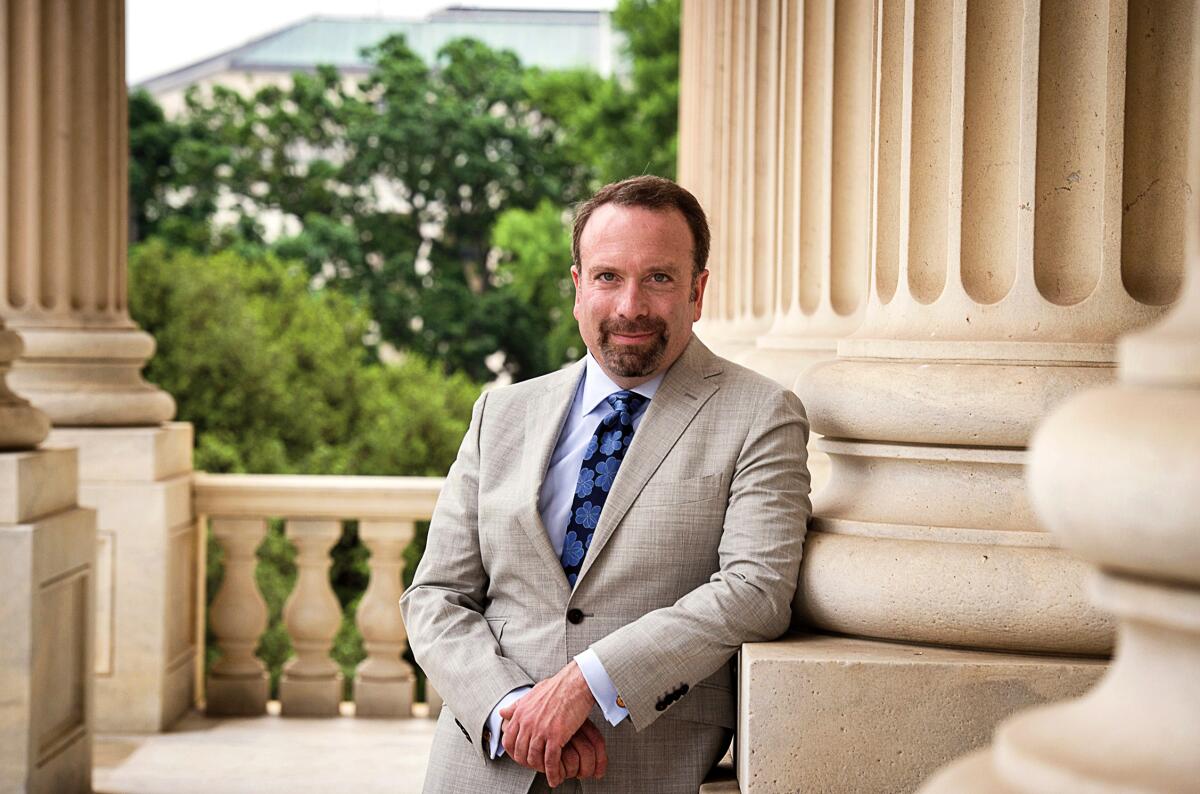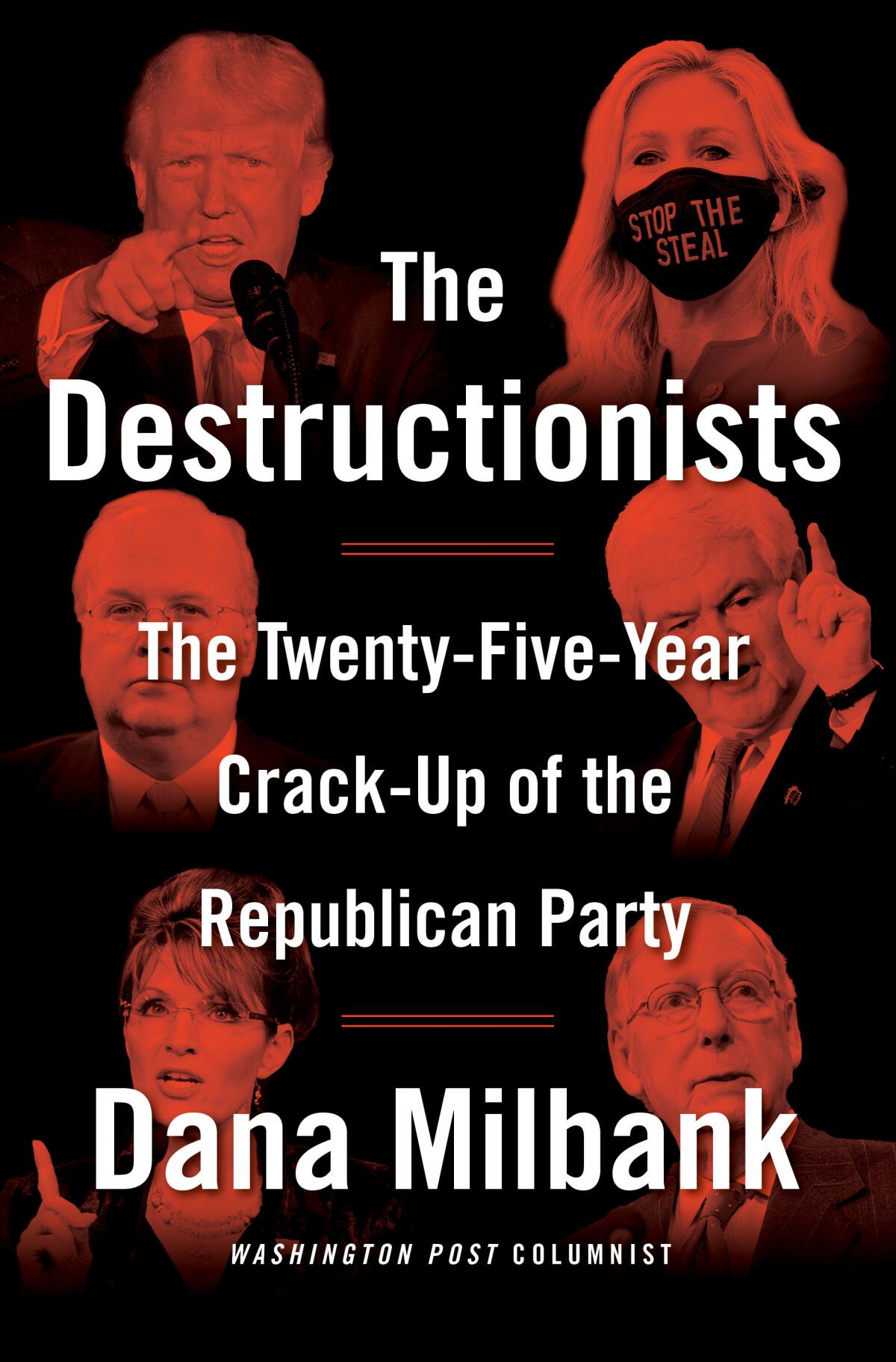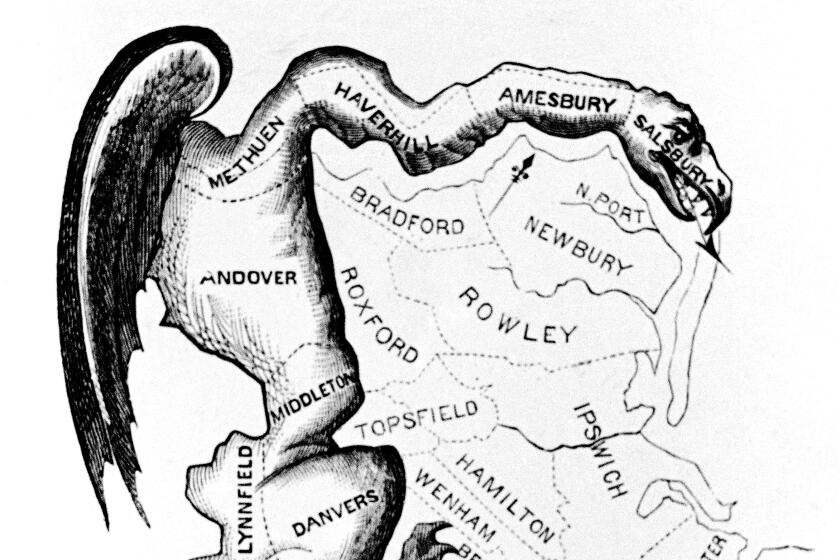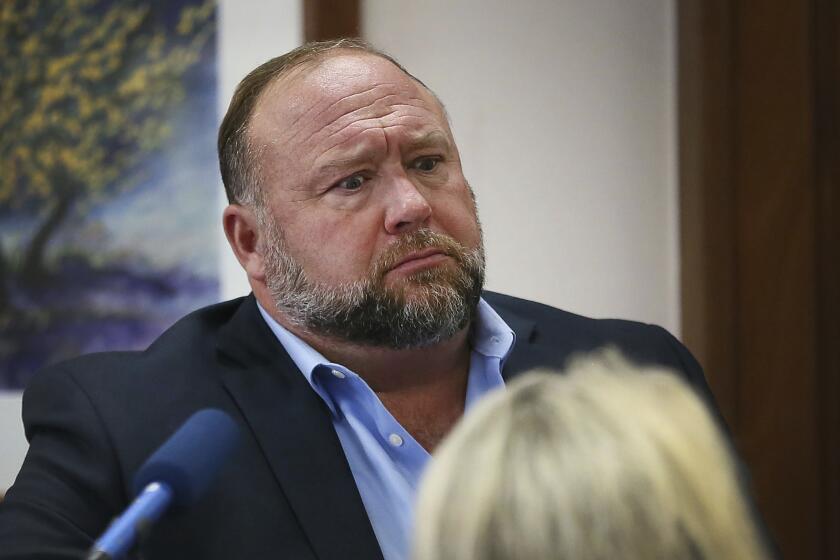Dana Milbank charts the 25-year journey to Jan. 6. He’s optimistic — in the long term

On the Shelf
The Destructionists: The Twenty-Five-Year Crack-Up of the Republican Party
By Dana Milbank
Doubleday: 416 pages, $30
If you buy books linked on our site, The Times may earn a commission from Bookshop.org, whose fees support independent bookstores.
Dana Milbank has been covering politics in Washington for decades, most recently for the Washington Post. After living in the center of the storm he has written a book, “The Destructionists: The Twenty-Five-Year Crack-Up of the Republican Party,” that seeks to bring a broader perspective to the party of Newt Gingrich, Karl Rove and Donald Trump — and also of Rush Limbaugh, Alex Jones and those who participated in the Jan. 6 insurrection.
“Writing about politics three or four days a week for the paper is like watching a different version of a train wreck over and over,” Milbank said during a recent video interview. There was a sense of relief in stepping back to see the bigger picture, he added, except it made him realize “it’s largely the same story, just building toward where we are now. Looking back, you say, ‘I didn’t see that for what it was at the time.’ It’s a depressing story.”
This interview has been edited for length and clarity.
Your core argument seems to be that Republicans have been peddling disinformation for decades, starting with the suicide of Vince Foster, the deputy White House counsel for Bill Clinton.
There were always people on the fringe with conspiracy theories and cockamamie false ideas, but they were kept on the fringe. But suddenly you had people like [Indiana Congressman] Dan Burton saying things that were plainly not true. The Republican leadership and commentariat, people like Newt Gingrich and Rush Limbaugh, were willing to say anything and let these people into the mainstream, thinking it would bring energy and enthusiasm.
They thought they could open the curtain just a little bit. With the tea party they let them in a little further. It happened again and again, building gradually. And then when a president voices these things, others feel it’s safe to come out and say them too.
Annette Gordon-Reed, Ayad Akhtar, Héctor Tobar, Martha Minow, David Kaye and Jonathan Rauch discuss the Jan. 6 riot and what we do about it.
You argue that the little lies of the 1990s were test cases for the more destructive “Big Lie” that Trump and his acolytes have perpetuated. Was there anything the Democrats or media or mainstream Republicans should have done to reverse the tide, or was everyone the proverbial frog in the pot of slowly heating water?
It’s the frog in the pot. I covered the White House for the Post during the first term of the George W. Bush administration and there seemed to be terrible, bitter fights. But now I speak to guys like [Bush’s chief of staff] Andy Card and ask what everybody was fighting about — in retrospect it seemed we were all within the 40-yard lines and now things have just gotten so out of bounds.
You can say, “Wait a second, what about the intimidation during the recount and Bush v. Gore and the selling of the [Iraq] war.” There were huge disputes about these things, but I don’t think people thought this could be the end of our way of governing.

Yet your book documents Karl Rove and Dick Cheney lying to win and to go to war — and how their tears in the fabric of a democratic society set Trump up to shred it fully. I’m surprised to hear you credit that administration with a shared value system.
Back then I was calling out Cheney for the Iraq lies all the time, but it didn’t occur to me that this was the path to destroying our democratic way of life. I don’t think you could have said, “And this is why we’re going to have an insurrection and people are not going to believe in a free and fair election.”
Your statistics illuminate how much more partisan and dysfunctional the Republicans have made government. But Ronald Reagan said, “Government is the problem.” Hasn’t this been their goal?
The party has gone from one that believed in small or limited government to one that is anti-government, which you see with the militia movement in the 1990s. Reagan had a more genteel approach and was not anti-government. But then people are saying the government has black helicopters and is targeting us and Congressman Tom DeLay is talking about “jackbooted government thugs” and that leads to the ideas of a deep state.
Were these shifts you lay out strategic or opportunistic?
I think people in the Republican Party determined it was in their interest to tell these people what they want to hear. They stumbled into that.
Look at Trump. When he thought about running for president in the Reform Party in 1999, he was all about tolerance and was pro-choice and pro-healthcare. He is all tactics and opportunism. With few exceptions I don’t think he cares a whit about policy and ideology. Trump doesn’t get very far out from his base. He’s always telling them what he’s hearing from them.
Nick Seabrook explains his new history, “One Person, One Vote,” and the way gerrymandering stymies everything from gun reform to democracy itself.
Michelle Obama’s “When they go low, we go high” is a noble sentiment. But shouldn’t Democrats more aggressively call out those who support the Big Lie and the insurrection? If they’re unpatriotic and acting like fascists, why not say that?
There is a space to be more honest and aggressive in their language without dehumanizing and dishonest rhetoric. Calling these people unpatriotic is not unfounded. It would be a more honest terminology in our politics.
You can’t call all Republicans fascists every day because it’s not true and serves no point but to inflame. But you can’t ignore the fascist influences. Hungary’s Viktor Orban, whose own advisor accused him of sounding like Goebbels, will be hanging out at CPAC [the Conservative Political Action Conference] in Texas with Trump and Republican members of Congress. So Democrats can say Republicans should stay away from fascists.
You write about anocracy (part democracy, part dictatorship) and include quotes about an approaching civil war. Where are we headed?
We have to get back to a place where there’s a shared set of facts or nothing else is going to work. I believe we will get back there but I don’t know what happens between now and then. My optimism is in the long run — this struggle is racial and it’s going to be resolved because we are not going to be a white-dominated country — but that’s 30 or 40 years from now. I’m not optimistic in the near term.
All the signs of our trajectory are pointing in the wrong direction right now. The level of violence could be greater. There’s going to be a chipping away at democratic institutions and press freedoms. We can’t predict how much of this will be lost until things start turning around, so all we can do is keep fighting at every turn to preserve it.
Our Constitution was written to protect the white and wealthy. We’re burdened by an electoral college and a gerrymandered system. What would you change if you were in charge?
Don’t put me in charge. I share the frustration with a system that gives the people of Wyoming 70 times the say in the Senate of the people of California. But the Constitution is all we have. The fact that the right is not playing by the rules does not justify the left not playing by them.
The only way forward for now is to fight to defend a system that worked, imperfectly, for nearly 250 years. It has not worked for everybody, and it has not worked all the time, but it has until recently evolved and improved. We should play within the system until and unless that system is completely destroyed. Sadly, however, we are evolving in that direction.
Conspiracy theorist Alex Jones says he now understands it was irresponsible of him to declare the Sandy Hook Elementary School massacre a hoax.
More to Read
Sign up for our Book Club newsletter
Get the latest news, events and more from the Los Angeles Times Book Club, and help us get L.A. reading and talking.
You may occasionally receive promotional content from the Los Angeles Times.








